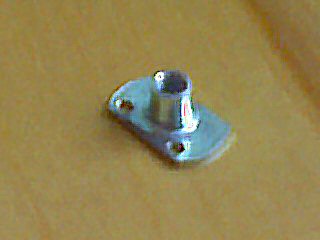By Joe Stoddard
Q. I've been told that when I delete files on my computer, the file actually remains on the hard drive. Is this true, and if so: Is there a way to *permanently* delete it? I often use a laptop, and I'm concerned that if it were stolen, someone could access sensitive files.
Last question: Is there a way to find and retrieve a deleted file if it is still on the hard drive?"
A. I'm assuming you're using some form of Microsoft operating system (I've got a better than 8 in 10 chance of being right).
Files on your hard drive are usually not in one piece, they are broken into many pieces that scattered all over your hard drive. When you "delete" a file in DOS or Windows 3.x, you are telling the operating system its OK to start recording other data in those same spots. So, its true that right after you delete a file, its probably still there.
In reality, after you use the machine for a short time some of the pieces of your original file will have been overwritten by pieces of other files, so some of the data might be unusable even if the file could be recovered. The FAT (file allocation table) keeps track of where all these little pieces are, and how they go back together.
Windows95 (and Macs) adds another layer of protection - the recycle bin, which is just another directory that stores an intact copy of the deleted file until you the user decide to vaporize it once and for all. There are high-end utilities available (such as Norton Utilities) that will let you erase all trace of individual files, but they wouldn't be very practical for day to day use.
The only other method of permanently deleting all traces of a file is to reformat the drive. When you do this, all the data becomes toast, and a new FAT is built from the ground up.
If you have a machine kicking around with tax records the IRS is looking for, reformatting the drive might be the way to go! And your concerns about laptop file security are valid. Data recovery experts could easily reconstruct enough of your criminal activity to send you away for a long, long time!
If you are truly worried about certain sensitive data files, I would suggest keeping them on some kind of removable media, like a floppy disk or a zip disk - something you could quickly destroy if enemy agents seized your laptop. Of course, this wouldn't do you much good if the floppy is left in the machine.
And then there's the question of the various temporary directories created as many programs run. There is almost always going to be some trace left on your computer, particulary if you're using the latest and greatest software.
The best solution would be to find some archaic program written for an original XT - we have a database application that lives quite happily on one floppy, and all the data lives on another one. When we use this old-timer absolutely no trace remains in the computer once the power is turned off and the system memory is cleared.
The irony of this example is that the old program I refer to is really just as useful as the bloatware of today. Not as pretty, but just as useful.
The software that most of us use every day has grown to ridiculous size and complexity. I doubt whether the average person uses more than 5% of the features available in a modern application (more on that in an upcoming column).
Your last question is about data recovery. If you are using DOS 5.X or later, there is a very handy utility: UNDELETE. It's an external program (it shipped with DOS) that does a remarkable job at finding and reconstructing deleted files. If used soon enough after a mistaken delete, you may have good results. I rescued my mother-in-law's resume this way (she still didn't get the job, but hey, I tried).
To implement it, go to the root directory, type UNDELETE at the prompt and hit enter. It will prompt you from there. If you're running Win95, just open your recycle bin (you didn't turn it off, did you?) and all the files will be right there - up to the space limitation you set.
If all else fails, get a copy of Norton Utilities and put it to work. I had a hard drive with a ruined boot sector (that's the part that reads when you first turn the machine on). The drive would just sit there and spin like an old phonograph. It was pitiful, especially since there were several hundred documents on there that weren't backed up (did I mention backups? If you had good backups none of this would matter, would it?).
I put the drive on the bench, ran Norton and in 5 minutes was back in business. The program was able to rebuild the boot sector and FAT, and I lost nearly zero data.
If that doesn't work, there are lots of places you can send your drive to have it dissected track by track and sector by sector - just plan on spending your vacation funds on data recovery!
Oh, and did I mention "backups"...?
Joe Stoddard is a Certified Professional Building Designer and writes frequently about computers for the building industry.
